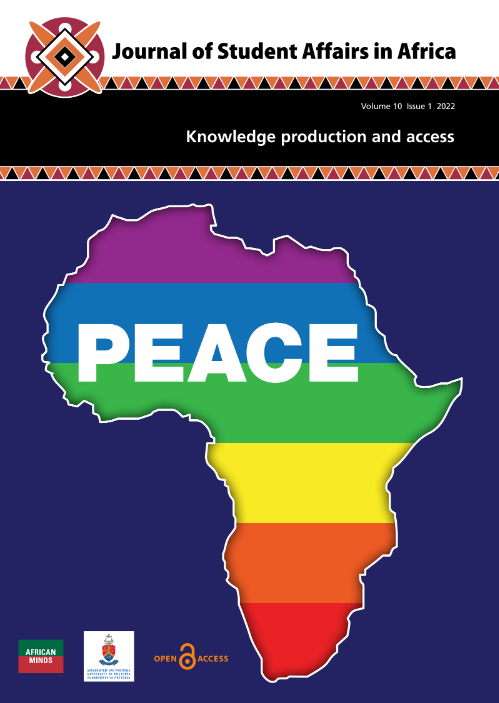Experiences of Students Living with Physical Disabilities at a University of Technology in KwaZulu-Natal
DOI:
https://doi.org/10.24085/jsaa.v10i1.2525Keywords:
Higher education, challenges, students, physical disabilities, University of TechnologyAbstract
Society’s inadequate response to disability impacts people’s physical health, social relationships and lives in general which can be perceived in the realms of family, friends, neighbours, psychological state and level of independence. The consequences of a disability can have an impact on multiple levels, the personal, interpersonal, family and social (Catherin & Shanbhang, 2015). These impacts are mirrored – and in some ways exaggerated – in the lives of students living with disabilities. Students living with physical disabilities at universities of technology may experience challenges that negatively affect their studies. The purpose of the study reported in this article was to explore the experiences of students who are living with physical disabilities at a selected university of technology in KwaZulu-Natal. The study adopted a qualitative design. Semi-structured interviews with open-ended questions were employed to collect data from the 10 participants. And participation of students living with physical disabilities was secured through the snowball sampling technique. The findings of the research revealed a variety of challenges that students with physical disabilities encounter at the selected university of technology.
Downloads
Published
Issue
Section
License
Copyright (c) 2022 Reggiswindis T Hlengwa, Andile S Masuku

This work is licensed under a Creative Commons Attribution-NonCommercial-ShareAlike 4.0 International License.
Authors who publish with this journal agree to the following terms:
Authors retain copyright and grant the journal right of first publication with the work simultaneously licensed under the Creative Commons Attribution Share-alike 4.0 International License that allows others to share the work with an acknowledgement of the work's authorship and initial publication in this journal.
Authors are able to enter into separate, additional contractual arrangements for the non-exclusive distribution of the journal's published version of the work (e.g., post it to an institutional repository or publish it in a book), with an acknowledgement of its initial publication in this journal.
Authors are permitted and encouraged to post their work online (e.g., in institutional repositories or on their website) prior to and during the submission process, as it can lead to productive exchanges, as well as earlier and greater citation of published work (See: The Effect of Open Access).


